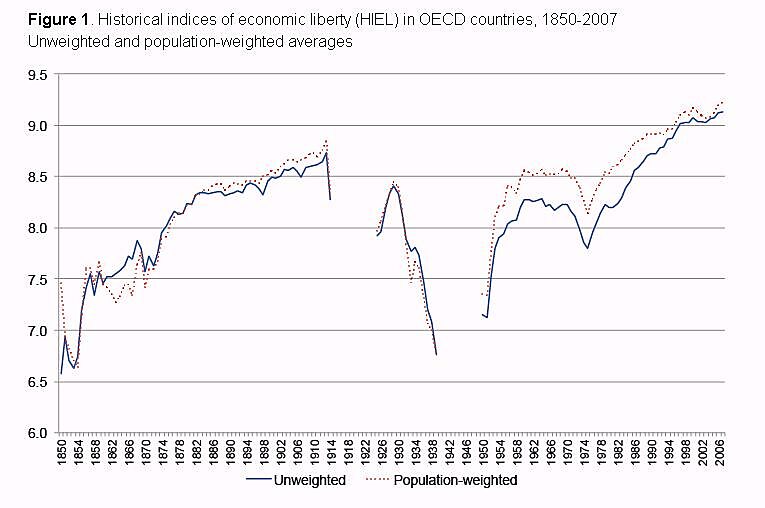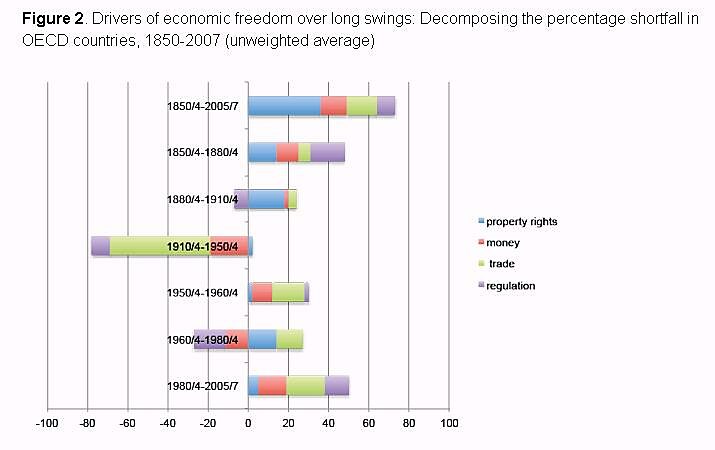There are many problems with The Washington Post’s recent article, “More College Students Battle Hunger as Education and Living Costs Rise.” Instead of discussing each problem—such as the claim that a college education is necessary for a good career—I’ll stick to research on quality of life.
When it comes to the claim that college students are going hungry, the article appears to be misleading sensationalism. The article argues that American college students are increasingly “food insecure” (i.e., they go hungry or lack access to nutritional food). This is supposedly a problem in part because students increasingly focus on obtaining food rather than studying.
In reality, Americans have never been more food secure. Over time, agricultural productivity has risen as food prices have dropped. (See Figure 1, below.) As incomes have increase, Americans use less of their total budget to purchase food (Figure 2). Today, calorie consumption in the United States is well above the recommended amount, even as we eat healthier foods more frequently (Figure 3).
Figure 1
Figure 2
Figure 3
While the figures deal with the population as a whole and do not isolate students as a group, neither does the article itself. The author only offers evidence that could imply students are hungrier than the rest of the population. In fact, the data on student hunger do not exist, which the author admits.
Of course, some college students aren’t eating a proper diet or are not eating enough. But I suspect that in a vast majority of cases, it’s not because they lack access to food or to nutritional food. Even the food budget examples that the author offers as insufficient for college students—$100 per month, $50 per week, or $10 per day—can purchase a filling and nutritional diet. Some healthy foods—black beans, oatmeal, bananas—are also some of the cheapest. And as someone who volunteers to feed the homeless with a private organization, I know there are plenty of charities that provide free food for the truly needy.
Perhaps universities should take this “news story” as a signal to offer courses that teach skills valuable in the real world, like budgeting. Instead of suggesting as much, the author mentions students’ inability to access food stamps, thus implying that yet another expansion of government could fix the problem. Ironically, the author also acknowledges that many private organizations already offer students free food, but claims that students are too proud to accept it. The author fails to take this opportunity to admit that much of the problem lies in poor budgeting and failure to take advantage of social structures, such as family and private charities, not lack of access to food. Then again, a news story about college students acting as college students tend to act—not sticking to a budget, eating unhealthily, being too proud to ask for help—would not sell many papers.
If you’d like an accurate take on food access and many other quality of life indicators, visit Cato’s new site, HumanProgress.org.






